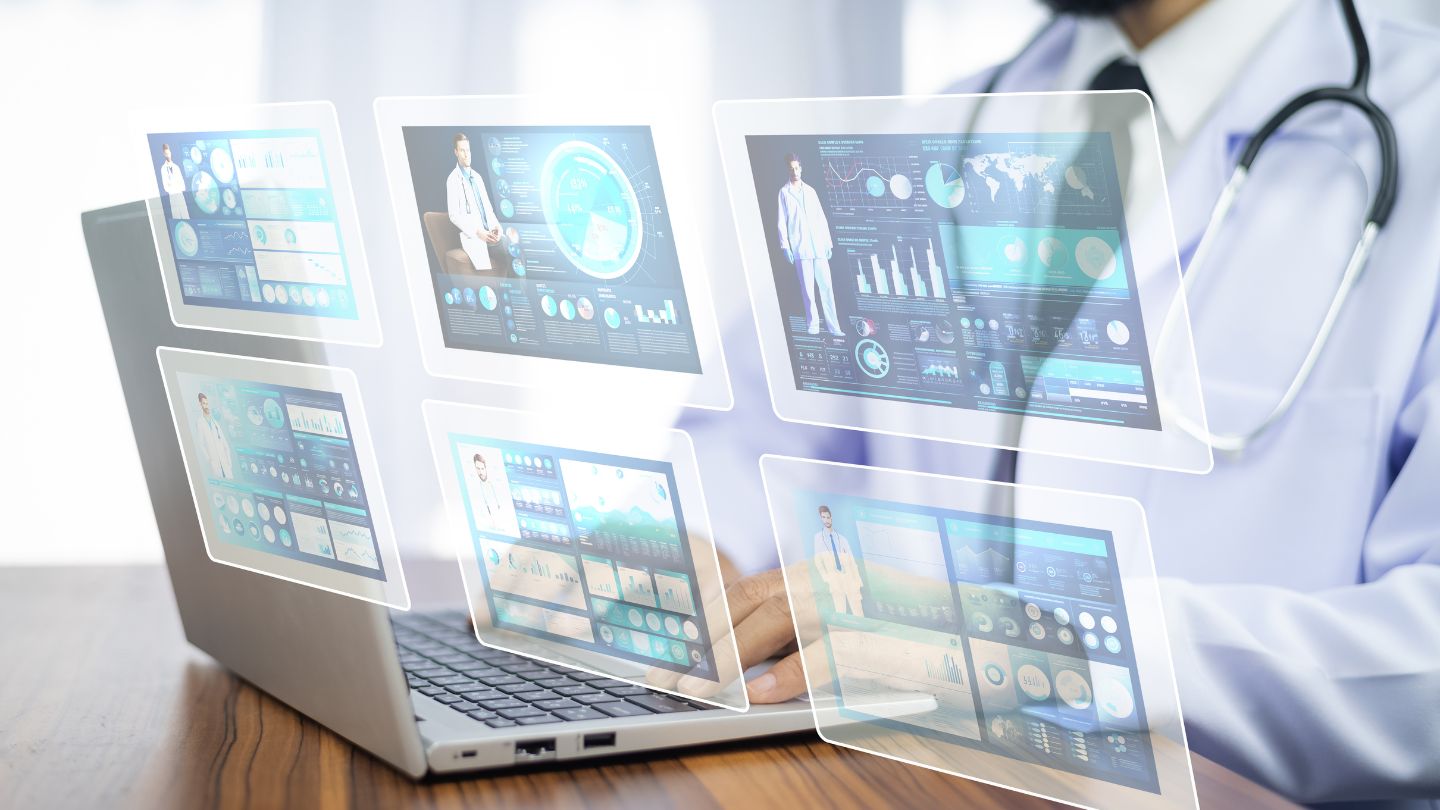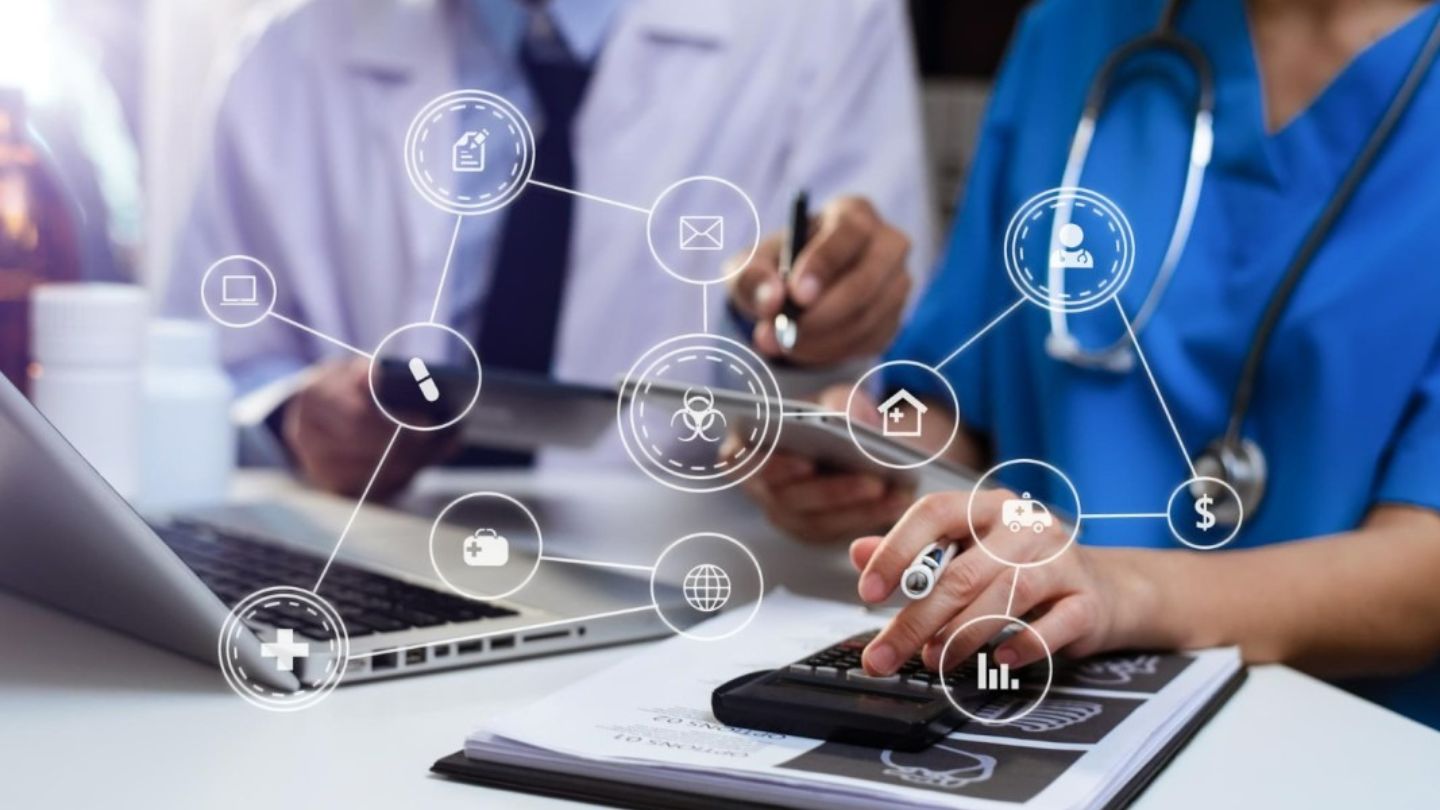Why Healthcare CRM Systems Are Essential for Streamlining Appointment Scheduling: Key Benefits & Solutions

Efficient appointment scheduling is essential in healthcare, but traditional methods often fall short. Healthcare CRM systems streamline this process by automating scheduling and reducing errors. In this blog, we explain why healthcare CRM systems are essential for streamlining appointment scheduling and explore their key benefits.
Key Takeaways
- Healthcare CRM systems automate appointment scheduling, improving operational efficiency and reducing manual errors, ultimately enhancing patient care quality.
- Online appointment scheduling features allow patients to book, reschedule, or cancel appointments conveniently outside of regular business hours, leading to increased satisfaction and loyalty.
- Data-driven insights from healthcare CRMs enable organizations to optimize scheduling, understand patient behavior, and enhance communication strategies, thereby improving patient engagement and outcomes.
Significance of Appointment Scheduling in Healthcare
Optimal management of patient appointments is crucial for the successful delivery of healthcare services. By ensuring that appointment scheduling operates smoothly, not only do logistical challenges get addressed, but critical components of patient care are also enhanced. Imagine a scenario where patients endure short wait times, access timely medical attention, and depart from the facility having had a gratifying experience—a scenario dependent on proficiently organized scheduling.
Efficient scheduling transcends enhancing patient satisfaction. It plays an influential role in fostering customer loyalty and enriching their overall journey through healthcare systems. Healthcare organizations that adeptly manage patient relationships using sophisticated patient relationship management tools witness increased dedication from patients along with amplified positive recommendations by word-of-mouth—an especially pivotal factor at a time when online reviews can shape the public perception and broaden outreach for these practices.
Fine-tuning appointment schedules drives operational efficiency within healthcare teams—enabling them to minimize downtime while better-allocating resources to promptly serve an expanding number of individuals seeking care. Such streamlined processes contribute significantly to both growth potential and scalability prospects for health facilities without compromising high standards of quality in terms of delivered treatments.
Ultimately, what lies at the core of effective appointment coordination is elevating the caliber of provided healthcare services. Through well-orchestrated schedule handling techniques, providers have more opportunity to direct energies towards delivering top-notch treatment outcomes—promoting improved health results while securing greater contentment among those they serve. Embracing this comprehensive viewpoint concerning practice administration constitutes a fundamental pillar underpinning progress and development across contemporary medical establishments.
How Healthcare CRM Systems Enhance Appointment Scheduling
Healthcare CRM software has transformed the way healthcare providers handle patient appointments by automating scheduling tasks, enhancing productivity, and minimizing human errors. This technology empowers healthcare organizations to refine their service delivery and effortlessly manage patient bookings.
Automation stands as a principal feature of healthcare CRMs, greatly improving the handling of patient data and interactions. Mundane activities like booking appointments, setting reminders, and conducting follow-ups are streamlined through automation. This not only boosts the precision in scheduling but also alleviates administrative workload for medical staff members. By simplifying these processes with CRM features, overall service quality is notably improved.
The appointment scheduling capabilities within healthcare CRMs are crafted to adeptly oversee reservations and maintain orderly appointment sequences. These functionalities permit patients to secure slots at times that suit them best while allowing practitioners to easily oversee these schedules, effectively reducing no-shows by using timely automated reminders.
Leveraging automation in managing patient records within CRM systems eliminates manual input mistakes, thereby elevating schedule reliability and making sure all pertinent information remains current, which enables care providers to offer customized attention promptly, Leading directly toward enhanced outcomes for patients, including an uptick in engagement levels.
Automated Reminders and Confirmations
Healthcare CRM systems, by incorporating automated reminders and confirmations, play a crucial role in diminishing missed appointments and maintaining schedule adherence. They automate notifications, provide online scheduling capabilities, and manage waitlists effectively—resulting in more optimized appointment attendance and better utilization of healthcare services.
Such systems are proven to cut down no-show instances by as much as 90%. By delivering timely alerts via text message, email, or voice calls to patients regarding their approaching visits along with any preparatory actions required, they bolster patient communication. This forward-thinking strategy elevates both the level of patient engagement and overall satisfaction rates.
The convenience offered through automatic reminders extends to rescheduling options for those unable to keep their original appointments. As such, functionality supports easy adjustments to bookings when necessary. It serves not only patients but also allows healthcare providers to make the most efficient use of available time slots. It lightens administrative tasks for staff members, who can then concentrate on providing high-quality medical care.
Enhanced interaction between patients and health services is achieved through these CRM systems that enable confirmation messages alongside pre-appointment notifications and post-visit follow-ups—all contributing towards improved patient participation levels. These communications ensure that clients have all relevant information pertaining to service access protocols, including paperwork requirements beforehand, thus streamlining processes significantly for all parties involved.
Integration with Electronic Health Records (EHR)
Healthcare CRM systems offer the notable benefit of integrating effortlessly with Electronic Health Records (EHR), eliminating repetitive data input, and maintaining up-to-date, precise patient information throughout the health system.
By harmonizing processes such as patient registration and scheduling appointments through integration with electronic medical record (EMR) systems, CRMs centralize all patient data. This consolidation cuts down on duplicated efforts and enhances the management of patient data. Secure real-time exchanges of HIPAA-compliant information between a healthcare CRM solution and EHRs make certain that sensitive patient details are both protected and accessible to authorized individuals. The adoption of CRM technology in healthcare settings can lead to an increase in overall operational efficiency.
The unification of online scheduling tools within CRMs improves the handling of patients’ records while minimizing unnecessary duplication. Incorporating digital intake forms into these systems helps lower waiting times for patients by ensuring accurate gathering of their details before they arrive for their appointments. Such advancements not only boost productivity but also elevate the standard care experience by allowing providers more effective access to necessary data about those they serve.
Linking schedule coordination software directly with mechanisms overseeing resource allocation permits a more streamlined arrangement process for appointments, which supports healthcare professionals in managing their timetables adeptly. The outcome is enhanced quality care outcomes along with heightened satisfaction among patients who receive services from these optimized practices.
Personalized Patient Communication
Healthcare CRM systems significantly improve patient engagement and satisfaction by providing personalized communication channels. These CRMs facilitate direct contact with patients through integrated platforms, utilizing SMS, email, or phone calls to ensure the timely delivery of reminders and follow-up messages for an improved healthcare experience.
Utilizing healthcare CRMs for customized communications allows patients to feel acknowledged and well-informed, thereby boosting both their engagement with the service provider and overall contentment. The marketing automation capabilities within these systems also play a crucial role in ensuring that communications are sent promptly to enhance the patient’s journey. Such personalization contributes to a stronger connection between patients and their care providers.
Effective tracking of patient interactions and medical histories is accomplished using advanced healthcare CRM technology. This enables practitioners to customize their communication strategies as well as treatment plans more precisely. Centralized data management found in these CRM solutions aggregates all forms of patient correspondence into one user-friendly platform which helps reduce the likelihood of overlooking critical patient messages.
By delivering targeted communications designed around the specific needs of individual patients, healthcare CRMs reinforce the bond between those receiving care and their providers. Transmitting tailored health information along with appointment reminders and subsequent follow-ups unique to each case efficiently aids practices in mastering patient interaction techniques, fostering greater levels of satisfaction while crafting an increasingly bespoke health management experience.
Data-Driven Insights for Improved Scheduling
Healthcare CRMs facilitate informed decision-making and strategic operational planning through the use of data-driven insights. By employing data analytics, healthcare institutions can delve into substantial amounts of patient information to better grasp patterns in patient conduct and preferences. Machine learning techniques are employed to sift through intricate sets of patient data to reveal hidden trends that might go unnoticed with conventional methods of analysis.
Predictive analytics is harnessed by medical organizations to anticipate individual health needs and tailor treatment approaches within their practices. By keeping an eye on scheduling indicators and collecting critiques, these entities can refine how they allocate appointment times, which enables both healthcare practitioners and providers to more efficiently organize their calendars within the medical sector.
CRM reporting functionalities provide a window into prevailing tendencies concerning appointments while evaluating levels of patient involvement alongside practice effectiveness. Such insights empower providers to track how well communication initiatives perform and refine interactions with patients. What’s more, integrating social determinants pertaining to health information can profoundly bolster engagement strategies by pinpointing obstacles impeding access to medical services.
By tapping into data-informed conclusions, medical establishments are poised not only to amplify operational efficiency but also to elevate the standards of care delivered to patients. In harnessing tools designed for analytics coupled with reporting capabilities, those providing healthcare services have at their disposal the means necessary for making choices rooted in knowledge that streamlines schedules and fortifies overall quality in patient attention.
Enhancing Operational Efficiency
CRM systems in the healthcare sector significantly alleviate staff workloads by streamlining the scheduling of patient appointments. The implementation of automated workflows within these CRMs assists in reducing time spent on administrative tasks, enabling a stronger focus on delivering quality care to patients, which can result in enhanced patient outcomes and elevated service standards.
Employing CRM systems to automate routine administrative operations lessens paperwork demands and optimizes process flow. Enhanced operational efficiency not only boosts employee output but also contributes to economic savings due to the reduced necessity for extra clerical personnel. Centralizing all patient data into a healthcare CRM facilitates better management of interactions with patients and decreases instances of error.
Efficiently managing schedules through CRM technology ensures that each appointment is matched with appropriate resources while maintaining cost-effectiveness. Organizing this aspect well curtails missed appointments among patients and diminishes pressure on healthcare providers, fostering improved operational performance and upgrading overall experiences for patients.
Harnessing healthcare CRMs serves to augment staff productivity by eliminating redundant duties. This shift empowers providers within the health sphere to dedicate more attention to high-quality care provision, driving superior results for their patients’ health along with reinforcing engagement between caregivers and those they serve.
Compliance and Security in Appointment Management
In the realm of appointment management, adherence to compliance and security standards is paramount. Healthcare CRM software must rigorously safeguard sensitive patient data and protected health information by ensuring HIPAA compliance and robust data protection measures. To uphold patient data security, healthcare CRM systems are required to integrate potent encryption protocols that secure data both during transmission and while stored, in line with healthcare security regulations.
Implementing role-based access control is imperative for limiting the visibility of sensitive information based on individual staff roles within a facility. This ensures that only those who are authorized have access to sensitive patient data, which is essential for upholding trust through conformity with regulatory requirements like HIPAA.
Healthcare providers utilize CRM systems designed specifically for the sector to bolster both the protection of delicate patient details and the fostering of deeper engagement with patients. By complying fully with pertinent healthcare regulations and instituting strong safeguards around their information assets, professionals can reassure patients about the safety of their personal records.
Appointment management’s focus on compliance and preserving confidentiality serves as a fundamental component in fostering confidence amongst clients regarding how their medical records are handled. Healthcare organizations depend upon specialized CRMs adept at securing private medical details while concurrently keeping pace with established industry mandates related to privacy protections.
Choosing the Right Healthcare CRM System
Selecting an appropriate healthcare CRM system is vital for healthcare providers who want to improve their operational efficiency and patient care. Healthcare organizations should consider the specific demands of their practice and how well the CRM handles maintaining patient relationships when choosing a system.
Essential components for a successful healthcare CRM encompasses capabilities that facilitate smoother operations and bolster patient engagement. It’s important to assess the comprehensive range of functions, including tools for segmentation, communication, and support provided by the CRM. Choosing a user-friendly system can decrease staff training duration while increasing productivity.
For a scalable solution that keeps pace with an expanding institution, it’s crucial that a healthcare CRM can manage growing numbers of patients adequately. Recognizing all costs associated with ownership, such as licensing fees and ongoing maintenance, will play a pivotal role in making an informed decision about your organization’s CRM technology. Selecting an optimal system empowers providers with robust means to oversee patient information more efficiently and elevate overall care delivery.
In essence, acquiring the right healthcare CRM is instrumental in fostering advancement within health organizations—it supports enhanced service quality through judicious evaluation of salient features alongside considerations regarding scalability and expenses involved. This allows providers to choose not just any but rather THE suitable customer relationship management tool tailored towards enhancing performance standards in providing medical services.
Summary
Healthcare CRM systems have become indispensable tools for automating and optimizing appointment scheduling. By reducing manual errors, enhancing operational efficiency, and boosting patient engagement, these systems ensure healthcare providers can offer seamless and timely services. With features like online scheduling, automated reminders, and integration with EHRs, healthcare CRMs elevate the overall patient experience while streamlining administrative workflows.
At Sequence Health, we specialize in delivering tailored healthcare CRM solutions designed to revolutionize appointment scheduling. Our innovative tools empower healthcare organizations to enhance efficiency, reduce no-shows, and foster stronger connections with patients. Partner with us to leverage expert healthcare CRM strategies and take your scheduling process to the next level. Together, we can elevate your patient care and operational success!
Frequently Asked Questions
What are the key benefits of using a healthcare CRM system for appointment scheduling?
Healthcare CRM systems streamline the appointment scheduling process by automating bookings, minimizing manual errors, and reducing administrative tasks. They provide features like online appointment scheduling and automated reminders, which improve operational efficiency and enhance patient satisfaction. Additionally, CRMs integrate with electronic health records, ensuring accurate data management and better patient care.
How do healthcare CRM systems improve appointment scheduling efficiency?
Healthcare CRM systems improve efficiency by automating scheduling workflows and enabling patients to book, reschedule, or cancel appointments online. They optimize schedules with features like skill-based routing and automated alerts, reducing no-shows and missed appointments. By centralizing appointment management, these systems allow healthcare providers to better allocate resources and improve overall patient experience.
How do healthcare CRM systems ensure compliance and data security?
Healthcare CRM systems are designed with strict compliance and security measures to protect sensitive patient information. They include features like encryption, role-based access control, and secure data storage to meet HIPAA requirements. Regular updates and audits enhance security, ensuring patient trust and adherence to regulatory standards.
What should healthcare providers consider when choosing a CRM system?
When selecting a healthcare CRM system, providers should assess features like appointment scheduling capabilities, integration with EHR systems, and data security protocols. Scalability is essential for adapting to practice growth, as is user-friendliness to reduce training time for staff. Providers should also evaluate the overall cost of ownership, including licensing and maintenance fees, to ensure the CRM aligns with their operational and budgetary needs.





